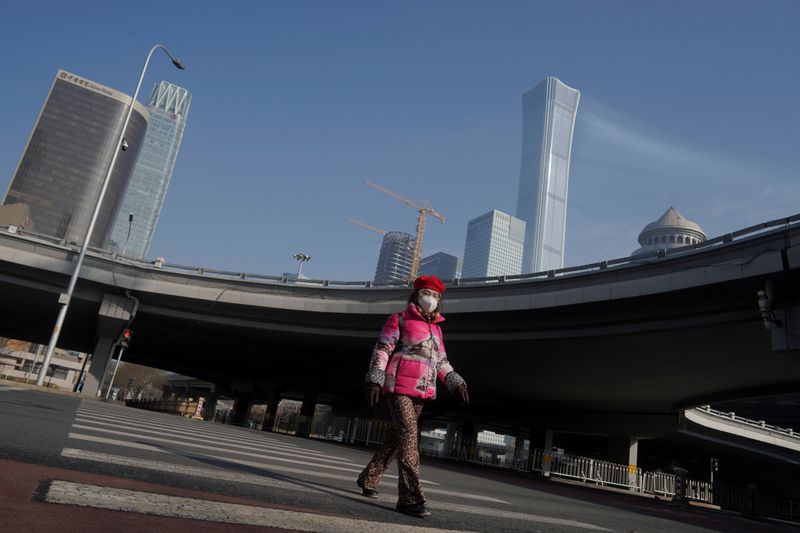By Kane Wu, Anshuman Daga and Scott Murdoch
HONG KONG/SINGAPORE (Reuters) - Bankers in Asia are bracing for a deal drought as efforts to limit the spread of the coronavirus epidemic have put key meetings and roadshows on hold.
Several auctions of assets are facing delays or re-assessments and preparations for potential Chinese initial public offerings (IPOs) are also slowing, bankers said.
"All our deals are on hold now - capital markets or M&A. Nothing is happening," said a Hong Kong-based senior investment banker with a Wall Street bank.
Baring Private Equity Asia is expected to extend a bidding deadline for the sale of HCP, a Shanghai-based packaging business valued at around $1 billion, said four people with knowledge of the deal.
The Hong Kong-based investment firm sent out teasers before Chinese New Year and was initially expecting bids to come in as soon as this month, they said.
Baring declined to comment and HCP did not respond to a query for comment.
The launch of a sale process of Eu Yan Sang International, a Singapore-based healthcare company specializing in Chinese medicine, is likely to be postponed, said two people aware of the matter. They said the company had hoped to value itself at more than $500 million.
The sale of the company, partly owned by a unit of Singapore state investor Temasek Holdings (TEM.UL) and with a significant chunk of its business in Hong Kong, is being pushed back as most of its targeted buyers are Chinese, these people said.
Eu Yan Sang had no immediate comment and Temasek declined comment.
"Any China-related deals are off, so that means Q1 is probably washed out. European and U.S. buyers are also worried about traveling to Asia," said a Singapore-based banker.
Major banks in Hong Kong and Singapore have restricted travel to mainland China and are allowing staff to work from home while moving others to different office locations.
A number of countries have reduced or canceled flights in and out of China while Singapore and Hong Kong have demanded people returning from China quarantine themselves for up to 14 days.
The virus has claimed more than 1,000 lives and has spread to 24 other countries and territories.
The bankers declined to be identified because the transactions are confidential.
LESSONS FROM SARS
During the 2003 SARS epidemic, the volume of China-related IPOs fell 25% in the first half of the year compared with 2002, while M&A volumes halved, according to Refinitiv data. The epidemic ended in July 2003.
China has become a far bigger factor for both markets since then, accounting for 55% of M&A and 66% of IPO activity in Asia-Pacific over the past four years, compared with an average 16% and 50% in 2003.
Another factor that will concern investors in IPOs is the potential for a company's outlook to worsen because of the epidemic, bankers and lawyers said.
"The most significant adverse impacts, as of today, are the ability of IPO candidates and the reporting accountants to get their financials prepared and audited and for advisers to conduct on-site due diligence given the disruption to regional travel," said Michael Jacobs, a partner at law firm Allen & Overy.
Buyout firm Carlyle Group Inc (O:CG) has delayed the U.S. IPO of its German specialty chemicals group Atotech, concerned that the coronavirus outbreak would hurt its valuation, Reuters reported last week.
While video conferencing is making it easier to hold meetings than during the SARS outbreak, dealmakers expect the drought to last for weeks to come.

"Over the next few weeks, nothing much is expected to come to the markets in this environment - on both the M&A and IPO side. I'm trying to focus on other deals where there's hardly any China involvement," said a banker based in Hong Kong.